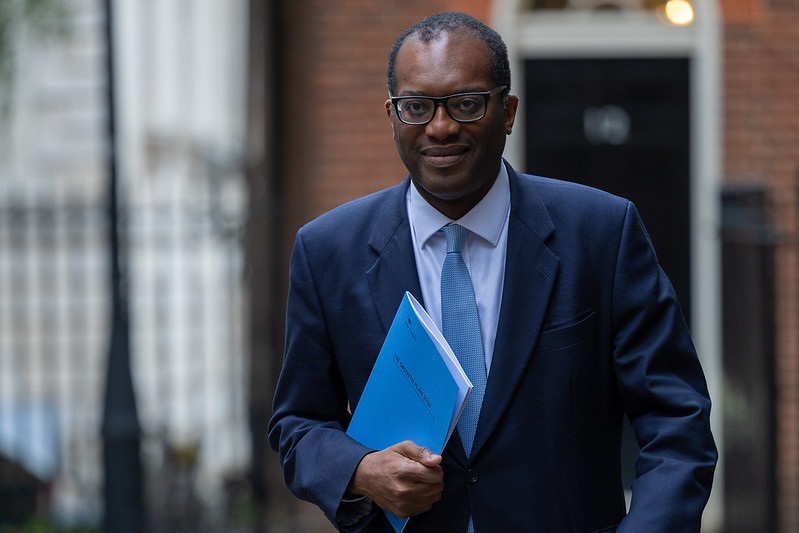
Chancellor Kwasi Kwarteng raised the threshold on stamp duty with immediate effect in a move which he claimed would lift 200,000 homebuyers each year out of paying the tax.
Under the changes buyers will not pay tax on the first £250,000 and, for first-time buyers, this increases £425,000.
Previously first-time buyers only received tax relief on properties of up to £500,000 but they can now benefit from the cut on homes worth up to £625,000.
Paula Higgins, chief executive of HomeOwners Alliance, a property advice website which has been campaigning to scrap stamp duty said the move was ‘great news’ for first-time buyers.
“Homeownership shouldn’t be for the richest in society, but achievable for everyone. This tax cut is a step in the right direction,” she said.
“The fact the change is permanent and starts today is particularly welcome as it will avoid the chaos of the previous stamp duty holidays. It means those who had put their move on hold earlier this week when speculation began can now crack on with their exchange and completion.”
What are the pitfalls for the stamp duty cut?
But critics say the tax cut did not address the lack of housing stock and they feared it could cause house prices to inflate further.
Sarah Coles, senior personal finance analyst at Hargreaves Lansdown, said, in the medium-term, it risked making life even harder.
Indeed, Sarah explained, when the tax relief was first introduced for first-time buyers, the government assessed the impact the following year. It found it only increased demand by around 1,000 transactions in the first 13 months.
What’s more, analysis revealed it had decreased the cost of buying by up to 0.5% but increased prices by up to 0.5% percentage points – and this wiped out any cost saving for buyers.
She added: “A shortage of buyers isn’t the biggest problem facing the property market right now, the real brake on the property market is a severe shortage of supply, because the average agent only has 36 properties on the books.
“Stimulating demand without addressing this, just risks pushing prices higher. Higher prices coupled with higher mortgage rates are going to push properties further out of reach for millions of people, which could in itself end up scuppering sales.”
The benefits to the wider economy
When rumours today’s mini budget would include a stamp duty cut emerged, there were concerns the Chancellor was planning another stamp duty holiday.
This course of action had raised concerns because it would have been temporary and therefore its impact on house prices may have been more intense and caused bottlenecks for solicitors and other industry professionals.
Today’s cut is expected to offer a similar benefit to the stamp duty holiday – which is to stimulate the economy – without the deadline which had caused an influx of people to rush into a purchase.
Rebecca Swain, head of residential conveyancing at Thomson Snell & Passmore , explained: “As we saw with the [stamp duty] savings introduced during the pandemic, a boost to the property market can ripple through to the wider economy.
“It will remain to be seen whether the announcement to increase the threshold for first-time buyers to £425,000 (on purchases up to £625,000) will be enough to offset interest rate increases, but it will represent a significant saving.
“For existing property owners moving home, a saving of up to £2,500 will also be welcome.
“It is a relief that the cut in [stamp duty] rates is permanent and will take effect immediately. When rumours of a cut surfaced on Wednesday, another time-limited discount (as we experienced during the pandemic) raised fears of further bottlenecks in the market when the period ends, as we saw in June and September 2021.”




